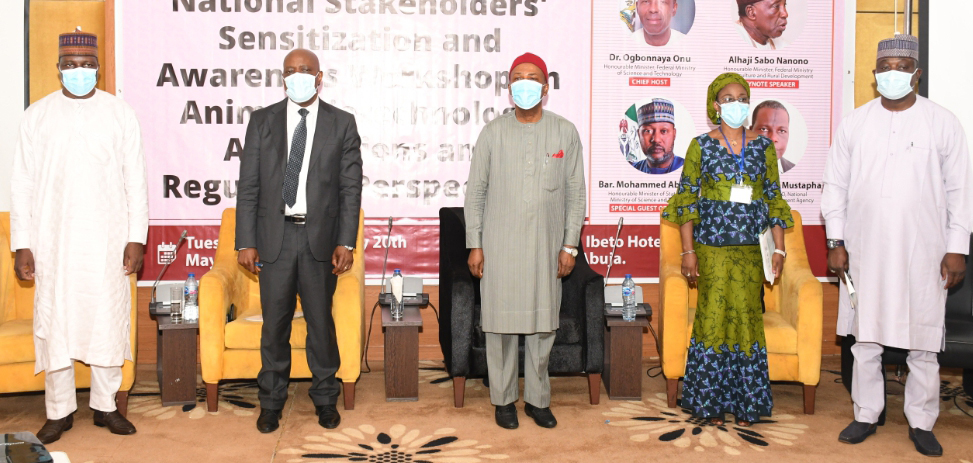Editorial
MDAs: Cutting Cost Of Governance

Indications are rife that the Federal Government will soon cut down personnel cost and merge Ministries, Departments and Agencies (MDAs) following persistent low revenue. The Minister of Finance, Budget and National Planning, Zainab Ahmed, hinted at the “National Policy Dialogue on Corruption and Cost of Governance in Nigeria’’ organised in Abuja this month by the Independent Corrupt Practices and other Related Offences Commission (ICPC).
In this era of disastrous economic hardship, the Federal Government’s move to cut cost is most acceptable. This is a route that will be beneficial and long overdue, moreso as the country’s current system of democratic governance is very expansive and expensive. Besides scrapping or merging redundant MDAs, the constitutional provision mandating the President to appoint a Minister from at least each of the 36 States, should be amended to reduce the number of federal cabinet members.
The initiative to reduce cost of governance is an appropriate step towards the realisation that large federal structure is a driver of the high governance cost, engendering public outcry that government spending is largely on recurrent activities at the expense of capital or developmental projects. The subsisting fiscal policy is simply unsustainable and negatively impacts on the government’s fiscal situation.
In some countries, the general cost of administration is less than 10 per cent of the total annual budgets. For instance, the United States, with a higher population than Nigeria, has only 15 secretaries and executive departments as against Nigeria, which has 27 ministers, 16 ministers of state and 27 ministries. At the moment, the Federal Government is maintaining about 943 MDAs with many of them having duplicated functions.
Personnel cost alone was N1.87 trillion in 2016 while currently, the same cost has spiralled to over N3 trillion. With this revelation, it is apparent that the aftermath of the rising cost of running the government is the reason only 30 per cent of the budget is available for capital projects and the cause behind numerous abandoned projects nationwide.
Despite the administration’s unruly spending spree, federal agencies have similarly been accused of using “security votes” to siphon the public treasury. In a presentation at a virtual webinar to mark the 2021 World Press Freedom Day organised by the US Mission in Nigeria, BudgIT, a civic-tech non-profit organisation, said its inquiry exposed “over 316 capital projects worth N39.5 billion, among other loopholes for corruption.”
It disclosed that N1.9 trillion was allocated to the security sector in the 2021 budget, a 14 per cent increase from N1.78 trillion allotted in 2020. Notwithstanding the increase in the funds budgeted and Buhari’s promises to crush insurgents, arbitrary killings and kidnappings at the hands of Boko Haram, bandits, and killer herdsmen remain a regular experience of Nigerians.
BudgIT further revealed that other non-security agencies now receive massive allocations for “security votes”, and described the spending as “an opaque feature of the Nigerian security ecosystem devoid of accountability.” In the 2021 budget, a total of 117 federal agencies received allocations for “security votes” worth N24.3 billion, even though many of the agencies already have allotments for “security charges” to cover each agency’s security needs.
Investigations into the 2021 budget revealed at least 316 duplicated capital projects worth N39.5 billion, with 115 of those duplicate projects occurring in the Federal Ministry of Health. This is very disturbing and unacceptable, especially considering the immeasurable health infrastructure deficit and the raging Covid-19 pandemic affecting Nigeria.
We are miffed by the disclosures of fraud in the MDAs. Urgent steps must be taken to block the leakages. It is tragic that the Buhari’s government that chanted the familiar anti-corruption mantra in 2015 is shamefully unable to fulfill its promise of curbing corruption and grand theft with the budget riddled with gaping loopholes. A staggering N3.31trillion debt servicing burden which will wipe out nearly 41.63% of the projected N7.99 trillion 2021 revenue has become the spectre severely haunting the country.
One of the measures to reduce governance cost in the face of plummeting revenue is for the current administration to revisit the White Paper on Steve Oronsaye Panel’s Report on the Rationalisation of Ministries, Agencies and Parastatals, submitted in 2014. The committee, set up by the administration of former President Goodluck Jonathan, recommended among other measures, the reduction of statutory agencies of government from 263 to 161.
Nigerian leadership must task themselves on good governance. They have to be reminded that the success story of the Asian Tigers many years ago was a product of sound leadership and determination. Since it has been established that corruption is one of the viable drivers of high governance cost in Nigeria, the need to rectify the anomalies to boost revenue as projected by the Federal Government is more obvious.
Editorial
For A Prosperous 2026

Editorial
Task Before New Defence Minister
Editorial
HYPREP And The Collapsed Water Tank

-
Rivers19 hours ago
Rivers Police Commissioner Condemns Vigilante Group Over Aluu Attack
-
Business19 hours ago
Industrialism, Agriculture To End Food Imports, ex-AfDB Adviser Tells FG
-
Politics19 hours ago
Bayelsa APC Endorses Tinubu For Second Term
-
Rivers19 hours ago
KALCCIMA Inaugurates New Executive Council … Pledges Renewed Drive For Kalabari Economic Growth
-
Business19 hours ago
Cashew Industry Can Generate $10bn Annually- Association
-

 Politics18 hours ago
Politics18 hours agoEFCC Alleges Blackmail Plot By Opposition Politicians
-
Politics19 hours ago
Datti Baba-Ahmed Reaffirms Loyalty To LP, Forecloses Joining ADC
-
Business18 hours ago
AFAN Unveils Plans To Boost Food Production In 2026

